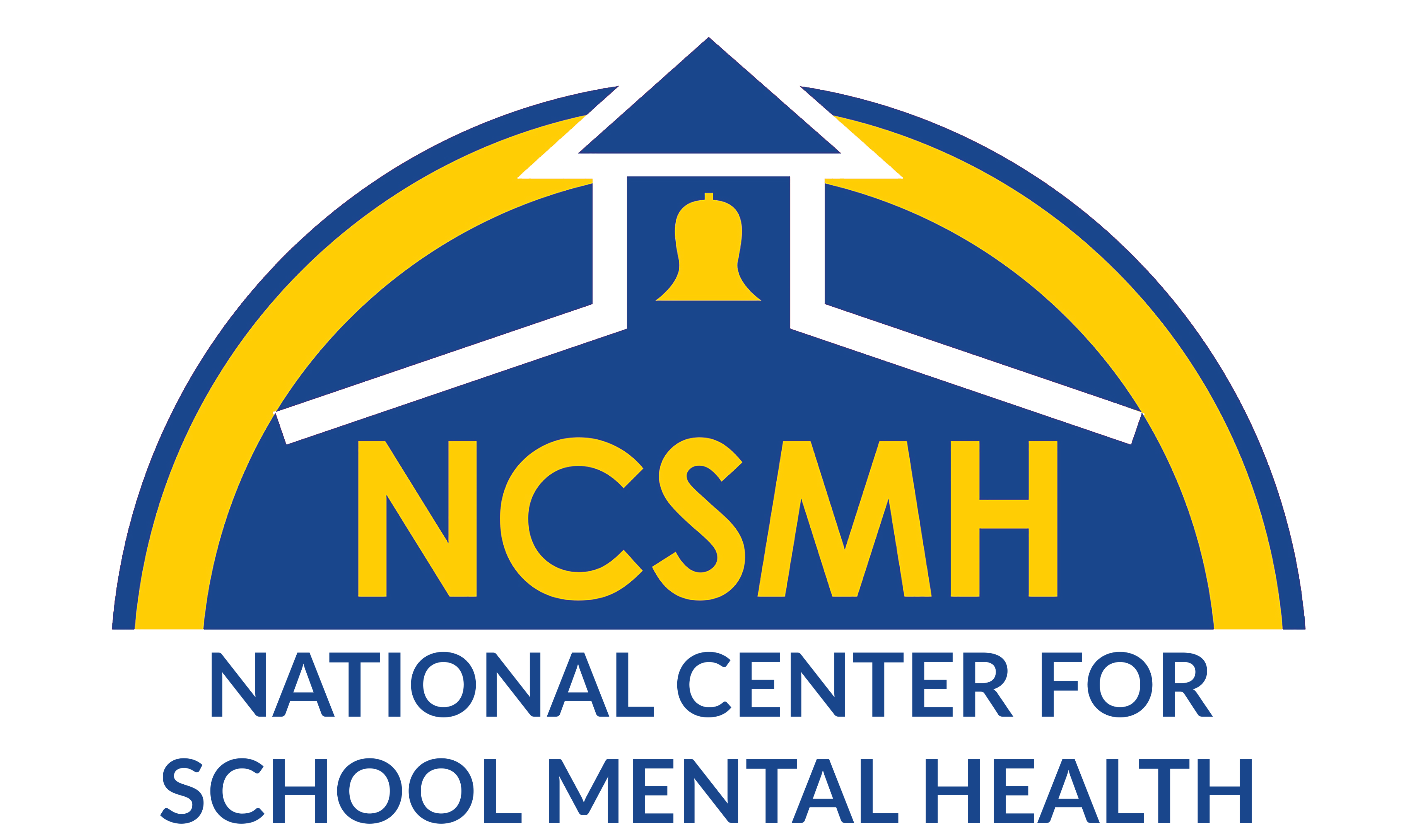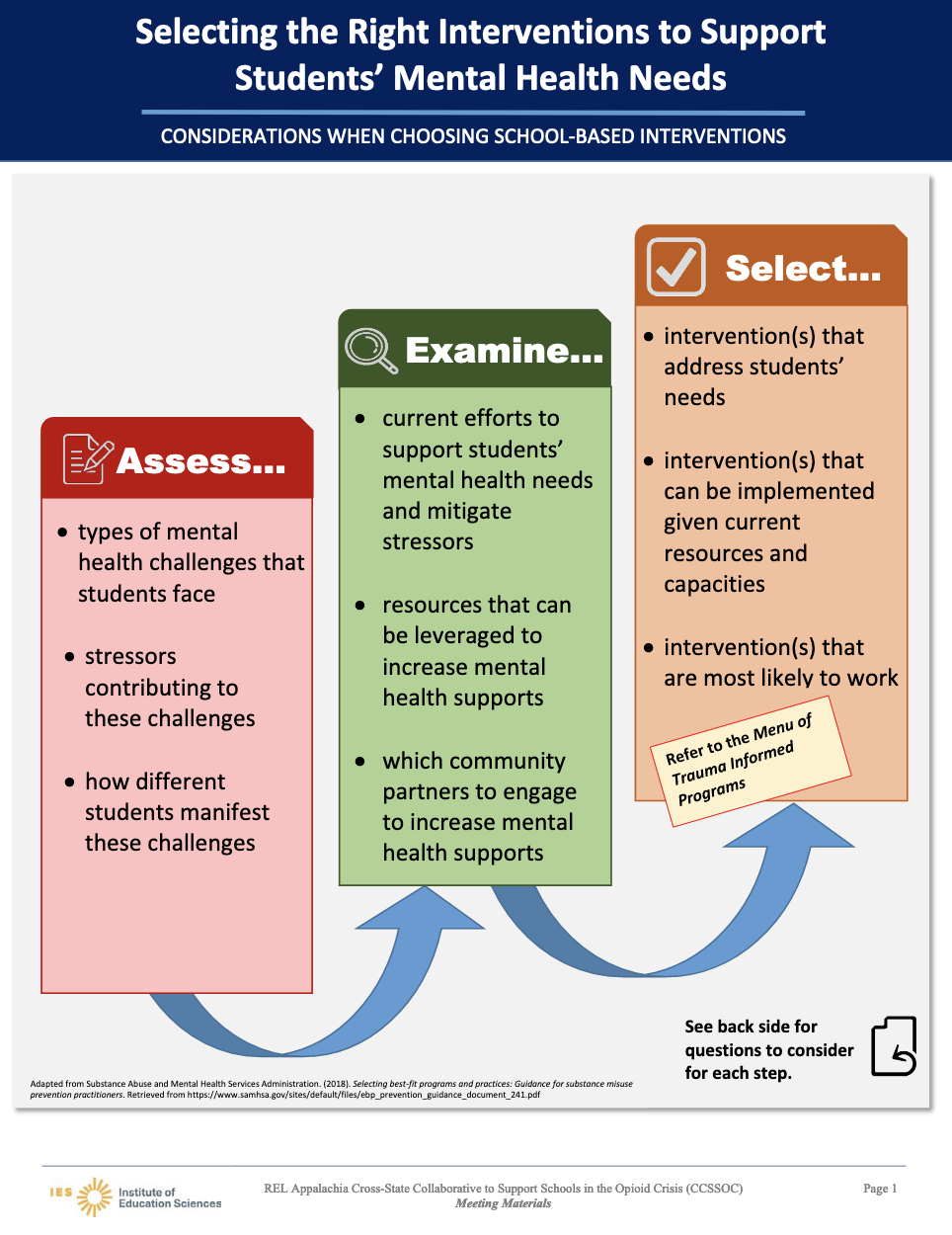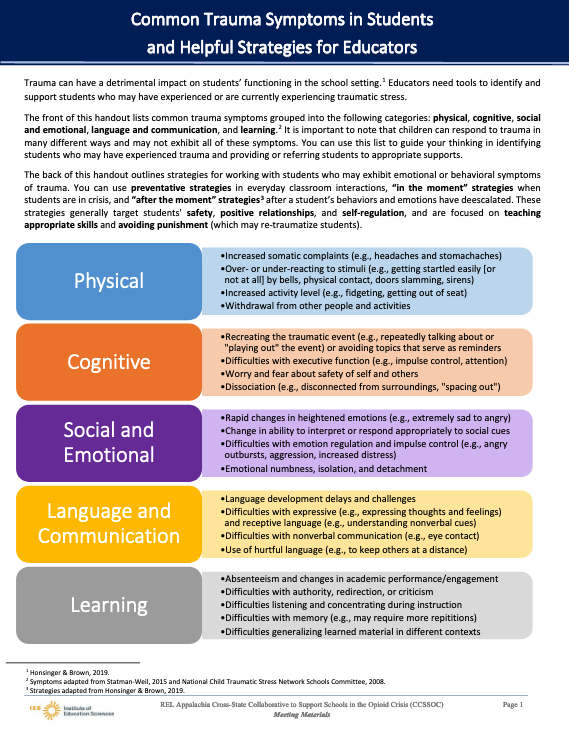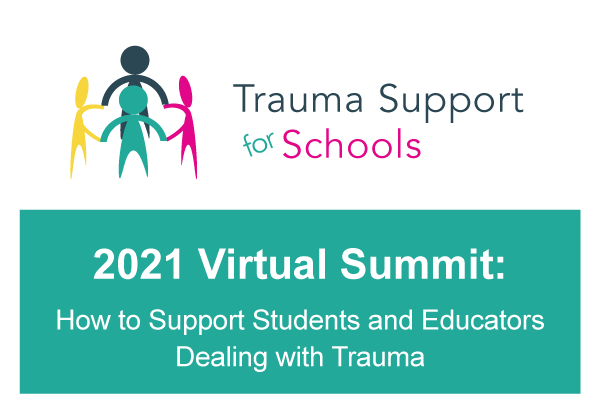This handout covers questions to consider when choosing school-based interventions Assess current needs Examine current efforts and resources Select interventions that fit your needs & context https://ies.ed.gov/ncee/edlabs/regions/appalachia/events/materials/04-8-20-Handout1_selecting-right-interventions-to-support-students-mental-health-needs.pdf
Many educators are seeking guidance to support students who have experienced trauma, particularly related to the opioid crisis. This resource was co-developed by the REL AP team and the Cross-State Collaborative to Support Schools in the Opioid Crisis (CCSSOC) and provides a list of interventions developed to address this specific need.
Trauma can have a detrimental impact on students’ functioning in the school setting.1 Educators need tools to identify and support students who may have experienced or are currently experiencing traumatic stress. The front of this handout lists common trauma symptoms grouped into the following categories: physical, cognitive, social and emotional, language and communication, and learning. … Continue reading Common Trauma Symptoms in Students and Helpful Strategies for Educators
In August 2021, the Regional Educational Laboratory Appalachia (REL AP) at SRI Education and the Cross-State Collaborative to Support Schools in the Opioid Crisis hosted a 2-day Virtual Summit: How to Support Students and Educators Dealing with Trauma. This summit was for researchers, practitioners, and policymakers who support preK-12 educators and students experiencing trauma. Resources compiled for the summit are available online at this website: https://traumasupportforschools.org/.
Large-scale study of a social problem-solving curriculum in grade 4-5 classrooms of 60 elementary schools. » Read more about this project on SRI.com » Read the article: Effects of the Tools for Getting Along Curriculum on teachers’ reports of elementary students’ executive functions, social-emotional skills, and behavior problems Lead Investigators: W. Carl Sumi, Michelle Woodbridge … Continue reading Effectiveness Study of Tools for Getting Along, Teaching Students to Problem Solve
Implementation and evaluation study of trauma-informed universal (Second Steps), secondary (Bounce Back), and tertiary supports (districtwide behavior support team) in 30 elementary schools in one urban school district. Lead Investigators: W. Carl Sumi, Michelle Woodbridge Funder: National Institute for Justice Dates: 2017-2021
Efficacy study of Foundations, a schoolwide positive and proactive behavioral intervention developed by Safe & Civil Schools conducted in 60 middle schools in 3 states. » Read more about this project on SRI.com Lead Investigators: W. Carl Sumi, Michelle Woodbridge Funder: U.S. Department of Education Dates: 2016-2021









